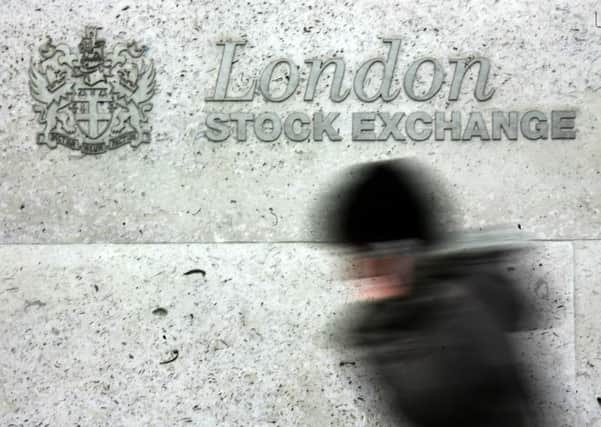Bill Jamieson: Time to cash in after the market surge?
This article contains affiliate links. We may earn a small commission on items purchased through this article, but that does not affect our editorial judgement.


But then, who would want to be out of the market at this time, and by doing so, fly in the face of Mighty Momentum? Last week the FTSE 100 Index swept up another 127 points or 1.8 per cent to a new record high of 7,337.81. The UK blue-chip index has notched up 14 consecutive daily rises, smashing previous records.
It’s all the more delicious after last summer’s cascade of dire warnings about a slumping economy, collapsing investment and consumer retrenchment as a result of the Brexit referendum vote. Meanwhile in America, the market continues to sweep all before it, shrugging off president-elect Donald Trump’s maverick emails, chaotic press conferences and dodgy dossiers alleging salacious behaviour.
Advertisement
Hide AdAdvertisement
Hide AdHere in the UK, investors have chosen instead to look through the gloomy forebodings of pundits and exult in the prospects of an inward investment surge and export boom in the wake of the fall in the pound – now down some 18 per cent since the Brexit vote.
Devaluation brings with it higher prices for imported goods and raw materials – and higher interest rates. But it also works to enhance the overseas earnings of major UK companies, to make the UK more attractive for inward investment, and to boost export volumes and profits of UK companies selling abroad. And this, by any standards, is a big devaluation.
And on Wall Street, investors have been buoyed by recent evidence of rising numbers in work, better than expected company earnings, a strengthening economy – and now an incoming president who has promised both tax cuts and a hefty federal government spending splurge on infrastructure projects.
All this has brought a switch in investor sentiment away from previously popular defensive sectors of the stock market – companies offering steady, reliable revenues and dividend income and lower volatility towards “cyclicals” – companies that stand to gain from an upturn in business and economic activity – typically banks, industrial companies, oil stocks and miners. The flight out of defensives has also been heightened by signals from the US Federal Reserve that as many as three interest rate rises are in the works.
Little wonder 2016 is now being described by some as “the last hurrah” for defensives. The turnaround set in during last summer and can be seen in the FTSE All-World Cyclical and Defensive indices, which group together global stocks from both camps. While defensive stocks continued to lead the way in the first half of 2016 the last six months of the year saw the Cyclical index rise 22.1 per cent in pound terms, while the Defensive index was up just 2.7 per cent.
And the switch has taken its toll on previous high-flying investment funds in the equity income sector. Neil Woodford’s Equity Income fund, top of the sector for two years running, has tumbled towards the bottom since last July, with a return of just 6.4 per cent. In the global sector, Terry Smith’s Fundsmith Equity fund, dominated by consumer staples and healthcare companies, was top performer with a 158 per cent return over five years. But since July the fund has returned just 6.8 per cent.
By contrast, Citywire adds, “value”, “recovery” and “special situations” funds, which target out-of-favour stocks trading on low valuations, have surged to the top of the sector since last summer. For example, the Investec Global Special Situations fund has returned 30.5 per cent since July, double the return it had managed in the previous 30 months. The dilemma now for investors is whether to follow the crowd and rotate their portfolio into cyclical shares or stay put, on the calculation that growth stocks are more than fully up with events.
It would not be surprising if shares were to retrace some 5 to 10 per cent of recent gains as investors give greater weight to fundamentals – the real world trading and earnings experience of companies. The incoming tide may have lifted all the boats, but not all boats are equally seaworthy.
Advertisement
Hide AdAdvertisement
Hide AdBear in mind also that much is being taken on trust – that the US Congress will back a Trump spending and borrowing spree, and that here at home devaluation delivers the benefits that text books suggest.
For these reasons, some selective profit-taking may now be in order, and a tilt in investor portfolios away from commodity-related companies after their recent strong run.
Allowing cash holdings to build to 10 per cent and more may be prudent, providing as it also does firing power for potential bargains ahead.
